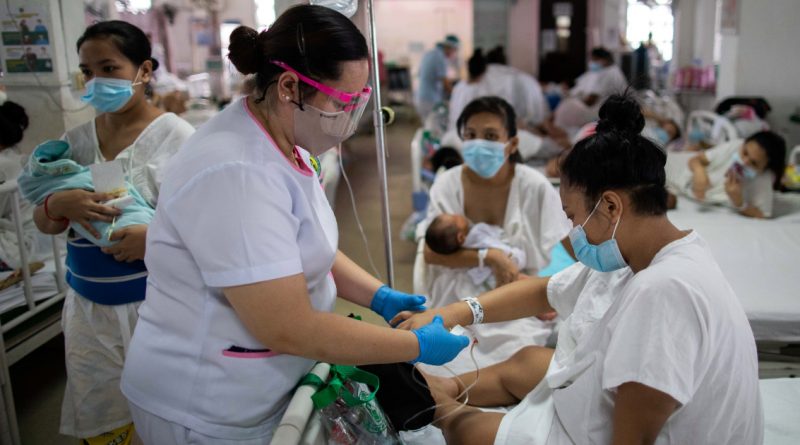One stillbirth every 16 seconds, and COVID-19 could make it worse | News
Almost two million babies are stillborn every year – one every 16 seconds – the United Nations said Thursday, warning that the COVID-19 pandemic could add another 200,000 deaths to a toll is described as devastating.
Some 84 percent of stillbirths, take place in low- and middle-income countries, as a result of a lack of midwives and poor quality healthcare, UNICEF, the World Health Organization and the World Bank Group said in a joint report. Improvements in basic antenatal care could save hundreds of thousands of lives each year, they added.
“Losing a child at birth or during pregnancy is a devastating tragedy for a family, one that is often endured quietly, yet all too frequently, around the world,” said UNICEF Executive Director Henrietta Fore.
“Beyond the loss of life, the psychological and financial costs for women, families and societies are severe and long-lasting. For many of these mothers, it simply didn’t have to be this way.”
In 2019, three-quarters of stillbirths – defined in the report as a baby born with no signs of life at 28 weeks of pregnancy or more – occurred in sub-Saharan Africa or Southern Asia.
The report warned that the COVID-19 pandemic could result in nearly 200,000 additional stillbirths, assuming that 50 percent of health services in low- and middle-income countries are affected by the COVID-19 response.
Mark Hereward, UNICEF’s associate director for data and analytics, told the AFP news agency that infants in many countries would suffer from COVID-19 even if their mothers never contracted the disease.
“Firstly, due to the massive increase in poverty because of the global recessions,” he said.
“The other way is through an interruption to health services, either because health workers are reassigned to work on COVID or because people are afraid to go to clinic”.
Hereward said that without urgent action the world will have suffered 20 million more stillbirths by 2030.
‘I cried and cried’
Approximately half of the stillbirths in sub-Saharan Africa and Central and Southern Asia occur during labour, compared with only 6 percent in Europe, Northern America, Australia and New Zealand, the UN said.
Such deaths could be avoided if women received better quality care – particularly from trained nurses and midwives – during pregnancy and birth, the report said.
Sabine Uwizeye, a 35-year-old living in Rwanda’s capital Kigali, lost her baby when she went into labour during the 37th week of pregnancy.
“I knew that something was wrong and the doctor told me that my baby was dead. I couldn’t believe it. I cried and cried,” she told AFP.
“The baby had many knots in its umbilical cord. I feel so bad even now not being able to hold my sick baby.”
 A mother and her baby in the Juba Teaching Hospital, the South Sudanese capital’s only fully functioning maternity ward. The country is one of the most dangerous places to give birth and be born according to the UN, with only 9 percent of births attended by a skilled helper or midwife [File: Stefanie Glinski/AFP]
A mother and her baby in the Juba Teaching Hospital, the South Sudanese capital’s only fully functioning maternity ward. The country is one of the most dangerous places to give birth and be born according to the UN, with only 9 percent of births attended by a skilled helper or midwife [File: Stefanie Glinski/AFP]Uwizeye is now the mother to a healthy 10-month-old, but she urged expectant mothers to be vigilant in monitoring their baby’s health.
“Keep going for checkups and make sure that your pregnancy is normal,” she said.
As well as the wide disparity in stillbirth rates between rich and poorer nations, the report also found significant variations in the rates within individual countries, often linked to socioeconomic status.
In Nepal, for example, women from minority castes have stillbirth rates as much as 60 percent higher than those from the upper class.
And in Canada, Inuit communities have a stillbirth rate nearly three times higher than the general population.
Speaking to journalists on Wednesday, Anshu Banerjee, director for the Department of Maternal, Newborn, Child and Adolescent Health and Ageing at the WHO said the world needed “break out of this cocoon of taboos and stigma” surrounding stillbirth.

